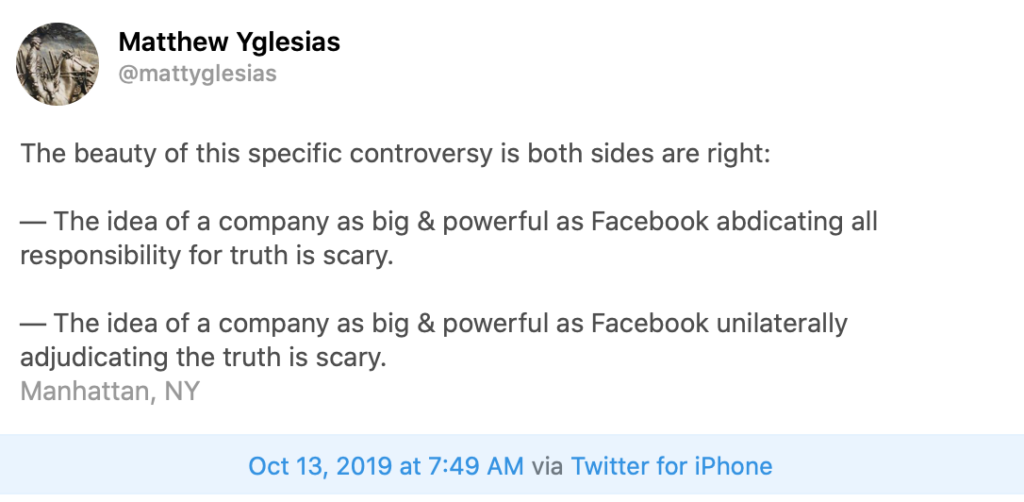I’ve been talking about corporate charters for a long time now, and people either don’t understand what I’m talking about, or think I’m crazy. We give people a charter to create a company, which grants them special, legal protections to build the business. But that charter implies a social contract that they will not abuse the public trust, in exchange for that special treatment.
This has been a sort of gentleman’s agreement, that corporations — as legal “people” in the campaign finance definition — would be good “citizens.” In modern America, many simply haven’t been, and it’s time to hold them accountable, and make them give back to society in a more equitable way. Global-spanning companies shouldn’t be allowed to continue to “socialize the costs, and privatize the profits.”
Just yesterday, Mark Benioff, CEO of Salesforce, wrote an op-ed in the Times saying much the same thing:
“To my fellow business leaders and billionaires, I say that we can no longer wash our hands of our responsibility for what people do with our products. Yes, profits are important, but so is society. And if our quest for greater profits leaves our world worse off than before, all we will have taught our children is the power of greed.
It’s time for a new capitalism — a more fair, equal and sustainable capitalism that actually works for everyone and where businesses, including tech companies, don’t just take from society but truly give back and have a positive impact.”
These people face perhaps the toughest uphill climb possible. The world of corporate governance is a private club, where executives of one huge, public company might sit on the boards of a dozen others, all interconnected. They’re used to getting their way, because, in aggregate, they use their money to influence local, state, and federal governments, to make things easier on themselves, and tougher on their competitors. They aren’t going to care for someone kicking over the castles in their sandbox.

